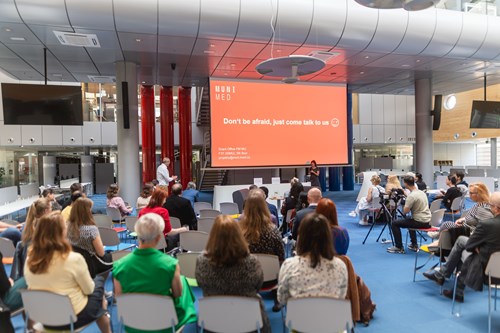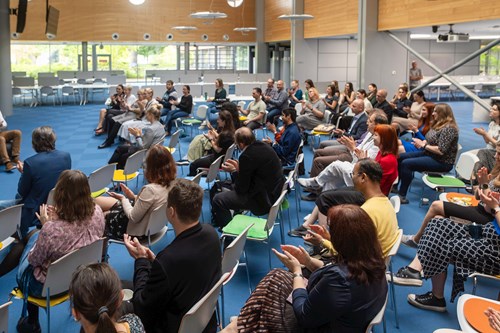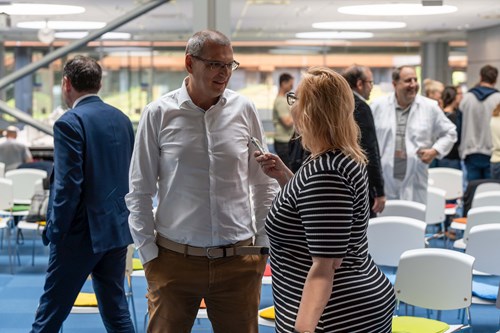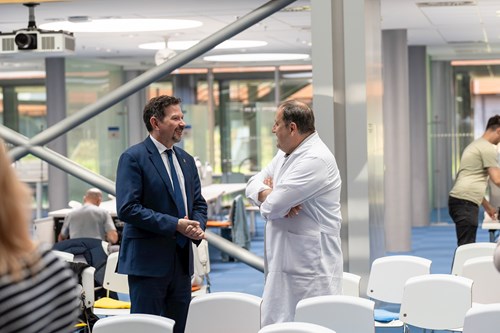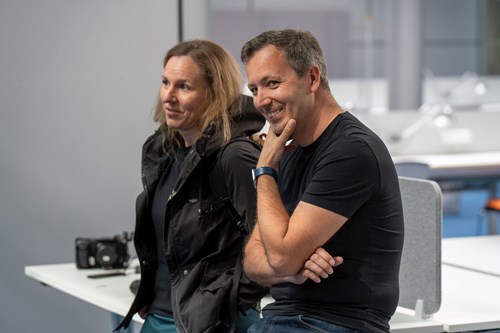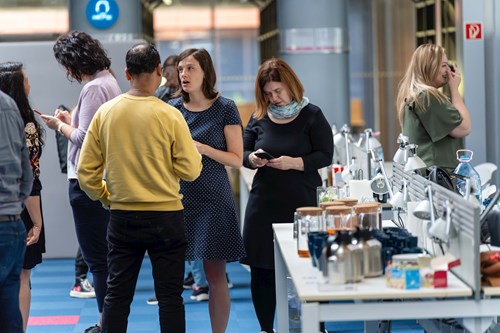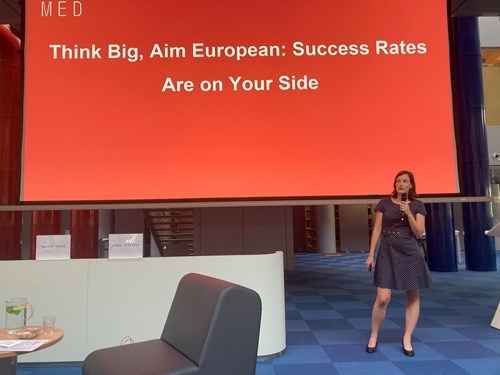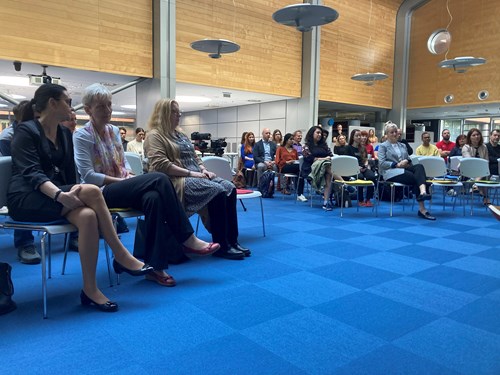He started his career as a physician in the early 1990s at the First Department of Neurology of St. Anne's Faculty Hospital under the guidance of eminent personalities. One was Ivan Rektor, whose research was oriented on epilepsy and movement disorders. He always emphasised clinical and research excellence, which made many of his colleagues either excel or leave due to high demands. Martin Bareš said: "Ivan Rector was a very specific personality who pushed us towards research and clinical careers, which was challenging but essential for our development.
"During his doctoral studies, Martin Bareš spent short stays in Slovenia, the Netherlands, Italy and Germany. After completing his PhD, he considered his next steps and eventually received a Fulbright Scholarship to the Departments of Neuroscience and Neurology, University of Minnesota, Minneapolis. In 2003, he moved with his family to Minnesota, where he had to overcome his initial nervousness and lack of self-confidence. After he obtained a postdoc position in the neuroimaging team, his confidence grew. This experience laid the foundations for, among other things, the idea of future accreditation of doctoral studies in neuroscience and the introduction of the postdoc position at Masaryk University. Reflecting on this period, Martin Bareš said, "The Czech educational system and research background did not prepare us for American standards, but it was a valuable lesson."
Inspired by the American experience, Martin Bareš co-founded the Simulation Centre at the Faculty of Medicine. He played a key role in the expansion of the university campus in Bohunice, the integration of postdoctoral positions and the development of the field of neuroscience. Martin Bareš summed up this inspiration in one sentence: "SIMU is here, the postdocs are here, and the campus is expanding. It's about big thinking and bold steps."
Tomáš Kašpárek also asked about the motivation of Martin Bareš, then a clinician, to apply for a Fulbright scholarship. Martin Bareš mentioned his competitive nature and his desire to test his abilities. Despite financial challenges, the experience was transformative for him. It allowed him to establish and maintain collaborations with American colleagues, publish articles, send postdocs to Minnesota, and share his knowledge with younger generations. "My biggest competitor is myself," Martin Bareš said. "Maybe that's my driving force. I wanted to learn something new and see if I could be successful."
Martin Bareš talked about the initial difficulties in balancing clinical duties and research activities, when he often felt overloaded. However, he now sees these challenges as crucial to his development. The support of his family has been and continues to be crucial in coping with his demanding career. "Sometimes I was really depressed and tired, but now I see it as part of my career development," he confides.
Furthermore, our guest also acknowledged the importance of setting boundaries to manage his workload. He has stepped back from several roles to focus on his university duties and future professional development. "I wouldn't have survived without setting some rules and refreshments, such as MUNI DAY," he admitted.
Martin Bareš expressed his wish to return to clinical work and teaching after his term as Rector. In the future, he wants to devote himself to doctoral students and contribute to patient care at St. Anne's Hospital and continue to educate future doctors and scientists. "I would like to be completely in the First Department of Neurology, taking care of patients with movement disorders and mentoring doctoral students," he said.
Summing up his impressions of his trip, he stressed the importance of democracy and self-service and encouraged others to "think big and do anything." His story is an example of how determination, vision and the support of a strong community can lead to significant advances in medical education and research. "It is a privilege of democracy that an ordinary boy from Brno could become rector," he concluded. "It's about service, approach and the belief that anyone can achieve great things."



